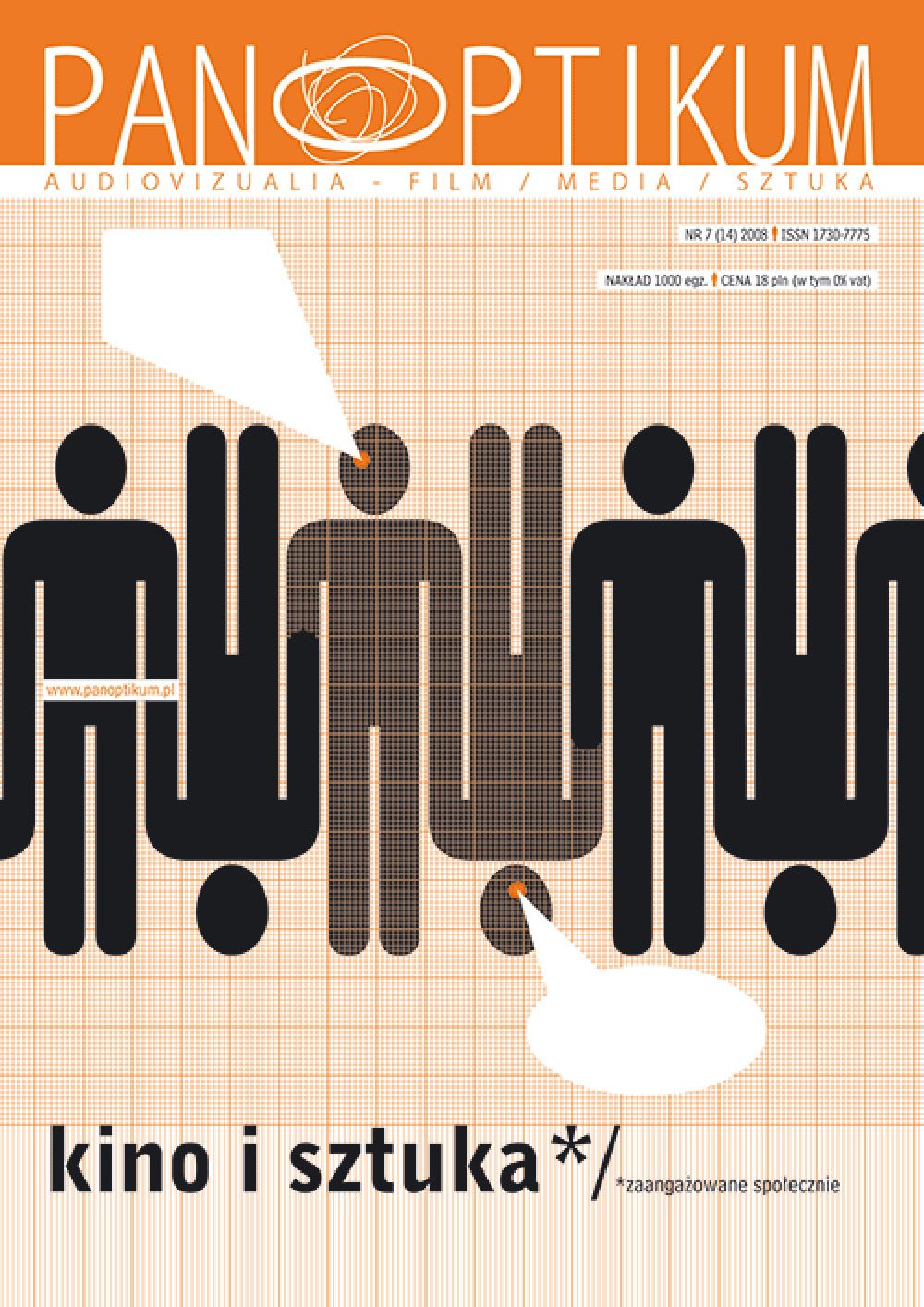Kontestacja i kino – refleksje teoretyczne
Abstrakt
Konrad Klejsa’ reflection in this text oscillates between the notions of cinema and dissent that are connected to the tern of 60’ and 70’. He formulates his doubts concerning the scope of those notions: can we talk about the cinematic dissent, or rather about the cinema of the decade of dissent? The author claims that it is impossible to establish any meaning of these notions without examination and identification of different modes of production and distribution of films created in those times, as well as without taking into account the dynamics of cultural processes. Cinema was only one of media in which the ideas of the “protest culture” were expressed. The films were accompanied by, and often preceded with, actions of the situationists (especially Guy Debord’s 1967 manifesto The Society of the Spectacle), as well as by critical discussions focusing on the ideological involvement of cinematic apparatus (connected primarily to French film theory and the strategy of exposing the ideological character of the mainstream cinema). The project of tracing the dissent in particular films must constantly be supplemented with the question of the actual scope of this notion: is it tantamount to the content or rather to the “progressive” form? Standpoints characteristic to the critique of dominant culture implied that the cinema of dissent not only documents the awareness of dissent but embodies it. If the mainstream cinema is not able to represent the dissenting groups and their aims, there is a need for independent media and distribution channels (i.e. funded by sources other than government). The author indicates new strategies of expression that realize theoretical assumptions of the dissent movement, focused around the formula of Brechtian cinema. The article is an excerpt of the book: Filmowe oblicza kontestacji. Kino Stanów Zjednoczonych i Europy Zachodniej wobec kultury protestu przełomu lat 60. i 70.

 Uniwersyteckie Czasopisma Naukowe
Uniwersyteckie Czasopisma Naukowe





